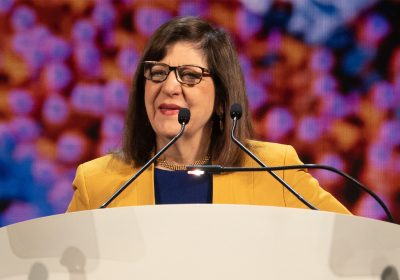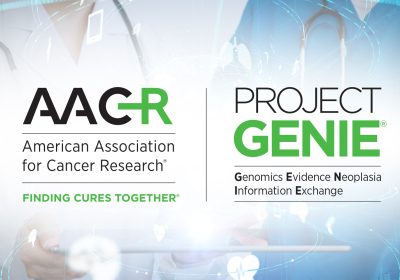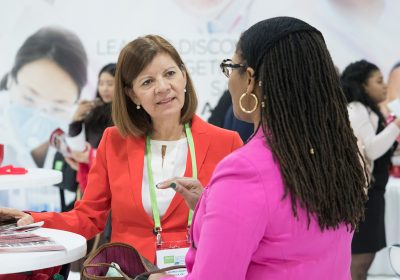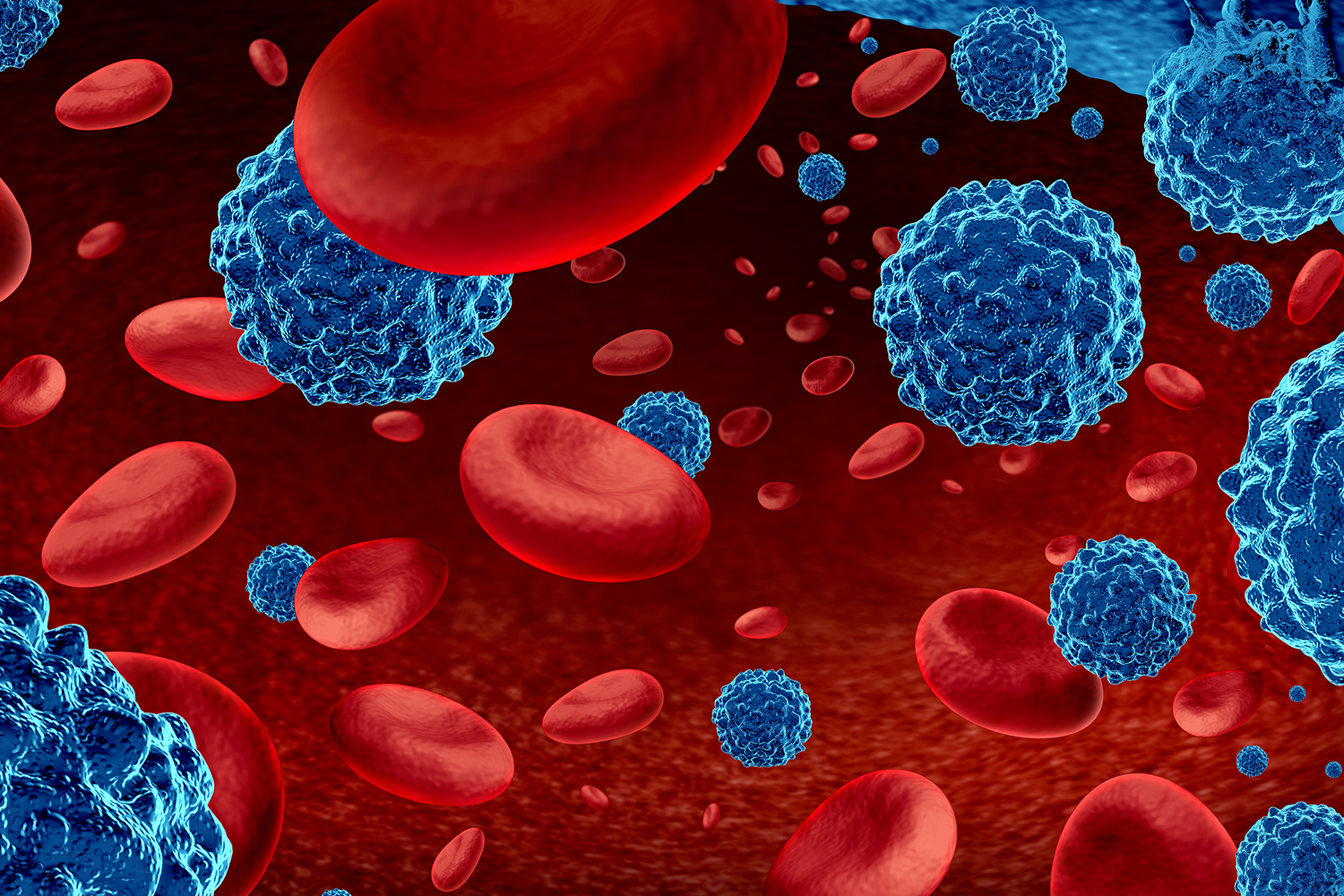
Blood Cancer Researchers Join Forces
The Hematologic Malignancies Working Group promotes AACR activities to support blood cancer researchers, clinicians, and physician-scientists.
More than 7,000 members of the American Association for Cancer Research® (AACR) are experts in hematology or hematologic malignancies or are interested in the area, representing 12% of the AACR’s membership worldwide. Hematology is the branch of medicine devoted to diseases of the blood, and hematologic malignancies refer to blood-related cancers like leukemia, lymphoma, and multiple myeloma.
To meet the needs of its large hematology-oncology membership, the AACR is stepping up its educational and networking activities in the area. A key driver is the AACR Hematologic Malignancies Working Group (HMWG), formed in March 2024. Kenneth C. Anderson, MD, chairs the HMWG and is also the co-editor-in-chief of the AACR journal Blood Cancer Discovery.
“There is a significant constituency in the membership interested in hematologic malignancies at the AACR, and so addressing their concerns and needs is very important,” said Dr. Anderson, who is the program director of the Jerome Lipper Multiple Myeloma Center and LeBow Institute for Myeloma Therapeutics at Dana-Farber Cancer Institute and a professor of medicine at Harvard Medical School in Boston.
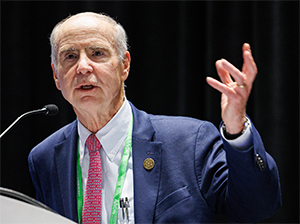
The AACR, which Dr. Anderson called “the best cancer organization on Planet Earth,” is uniquely positioned to serve hematologists-oncologists and blood cancer researchers, as well as solid tumor cancer researchers and clinicians. Facilitating interactions between liquid and solid tumor researchers will benefit both groups, Dr. Anderson said.
“There is a natural tendency and ability to cross-fertilize discoveries made by solid tumor and blood cancer researchers that result in greater impact to patient care as opposed to solely focusing on one type of blood cancer,” he said. “So, it’s a chance for a broader audience to appreciate the progress in cancer [research] in general and undoubtedly foster more collaborations. Lessons learned in solid tumors can help blood cancer [research] and vice versa.”
The HMWG currently has about 1,400 members, and attendees at the AACR Annual Meeting 2025, held April 25 to 30 in Chicago, benefited from an extensive lineup of blood cancer-related sessions, including an HMWG Town Hall Meeting, where participants learned about biological and clinical dependencies in hematological malignancies.
“There are mechanisms that leukemia, lymphoma, and myeloma share in terms of their biology,” Dr. Anderson said prior to the Town Hall Meeting. “Tumor cells depend on these features to grow, and therefore, they’re a common potential source of targets for innovative therapies. So that will be a very exciting discussion presented by world-class experts and undoubtedly will stimulate much discussion and hopefully some new collaborations as well.”
The Town Hall Meeting wasn’t the only opportunity for blood cancer specialists to learn at the Annual Meeting. A Hematologic Malignancies topic track consisted of 16 sessions, including one chaired by Dr. Anderson on “Lessons Learned Between Solid Tumors and Hematologic Malignancies.” New this year, a mini-symposium featured innovative work involving hematologic malignancies selected from submitted top-ranked abstracts.
“There is a tremendous interest in more sessions focused on issues around hematologic malignancies at the Annual Meeting, and this will not only encourage more participation from those focused on blood cancers, but also more interaction between investigators in other disciplines and those researching solid tumors,” Dr. Anderson said.
The interplay among researchers and clinicians specializing in blood and solid tumor cancers will allow experts in both areas to learn from each other, Dr. Anderson said.
“One example would be CAR T-cell therapies being used in the treatment of blood cancers, which have many lessons to teach solid tumor investigators and caregivers,” he said. “Conversely, checkpoint inhibitor biology is extremely developed in many solid tumors and much less so in hematologic malignancies. Cross-disciplinary interactions will allow us to further all cancer fields so that patients with all cancers can benefit from these scientific advances.”
Outside of the AACR Annual Meeting, the Working Group is looking for ways to impact hematologic malignancies research and treatment by collaborating with groups including the American Society of Hematology, the Federation of American Societies for Experimental Biology, and the International Myeloma Society.
For Dr. Anderson, who is a practicing clinician as well as a researcher, this cross-fertilization among disciplines and organizations ultimately benefits cancer patients.
“The Hematologic Malignancies Working Group is composed of bench-to-bedside researchers and clinicians whose total focus is to improve the outcomes of patients,” he said. The interactions among specialists in leukemia, lymphoma, multiple myeloma, and other blood cancers, he added, and between blood cancer specialists and solid tumor researchers and clinicians have one goal: help researchers “learn lessons that will benefit patients and their families much more quickly.”



